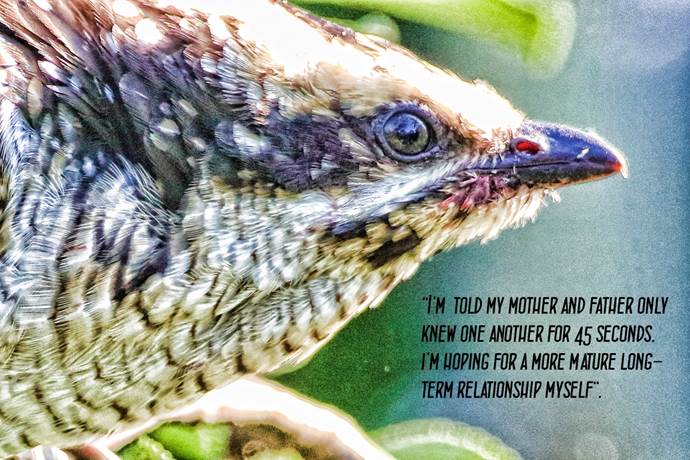Thanks Geoffrey, yes I certainly agree with you about the reasons for the no longer prolonged ko-eling in many areas being related
to the both the earlier arrival and presence of many more females. That’s what the evidence that I gathered, and included in my yet to be published CBN paper, supports. However, one feature, at least for last year, was the noisy gathering (including in my
GBS site) of often up to six males and females with lots of wirra-wirraing and kek kek kekking calls.
There seems to have been much less of that reported this season, including in my local area until up to a week before Xmas when Koels
suddenly became more noticeable, but only a maximum of three together. Perhaps these gatherings are becoming more common in other areas and not worth reporting, but there certainly are signs that this year may be different in a number of respects than the
previous one.
Regards
Jack Holland
From: Geoffrey Dabb [
Sent: Tuesday, 2 January 2018 9:05 AM
To:
Subject: FW: [canberrabirds] Backyard Bird of the Year (so Far)
Each year has been different with koels, but I have noticed a trend. A few years ago when they first appeared in numbers prolonged keeling was the pattern.
It was not unusual for a bird to call for 20 minutes at a time, typically from the top of a favourite tree. There were few females about. Over the years there was a change to the present pattern. While there is periodic, relatively brief koeling, the pattern
now is what I might refer to as ‘fugitive calling’: a sudden ‘wirra-wirra’ with the bird near at hand that is then repeated by the same or a different bird further off, and then sometimes further away again. The sequence sometimes involves a ‘kek-kek’ instead
or as well. These moving (fugitive) callers are not often seen.
I would speculate that the prolonged koeling was a sign of the scarcity of females, while the present pattern indicates many more koels in the local area and
certainly more females. Of course the more females the more chicks, a limiting factor to this trend being, presumably, the number of late-nesting wattlebird pairs. Will the local wattlebirds develop some kind of defence in response to the koel invasion?
That, I think, was the subject of Virginia Abernathy’s researches. Perhaps koel behaviour will continue to evolve as well.
 m("01D383E9.86467760","image001.jpg");">
m("01D383E9.86467760","image001.jpg");">
Thank you Tyrie, in what suburb are you, and do you know the host (I’m assuming Red Wattlebird)?
As numbers seem to be increasing every year I’m again keeping a tally of Koel chicks. With 6 that I’m now aware of already we’re off
to a flying start compared with last year when of a total of close to 60 the first was not reported until early January. Based on the many contributions from chat line subscribers etc, this has been written up in a paper which has been accepted for Canberra
Bird Notes and will appear in the next issue.
Many thanks
Jack Holland
Great shot! We spent an hour in the sun this morning waiting for the the one being fed in our backyard to emerge from its tree for a photo like that. Only after we gave up and put the cameras away did it make a very brief appearance in full view!

